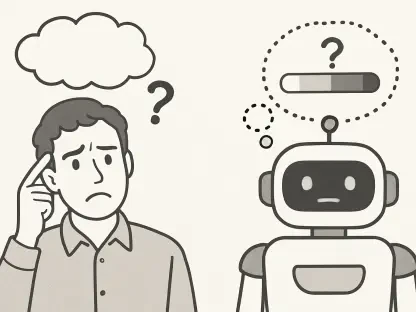In the rapidly evolving landscape of workplace technology, few have their finger on the pulse quite like Laurent Giraid. As a seasoned technologist with deep expertise in artificial intelligence, machine learning, and natural language processing, Laurent has been at the forefront of exploring how AI can transform enterprise collaboration. With a keen interest in the ethical implications of AI, he offers a unique perspective on how platforms like Slack are integrating cutting-edge technology to redefine productivity. In this interview, we dive into Slack’s latest AI innovations, the power of conversational data, security considerations, and the broader implications for workplace collaboration.
Can you explain what Slack’s new real-time search API and Model Context Protocol server are, and why they’re significant for AI development?
Absolutely. Slack’s real-time search API is a game-changer for developers because it allows AI applications to tap directly into workplace data—think messages, files, and channels—in real time, based on user permissions. It’s a streamlined way to search and retrieve relevant information without duplicating data across systems, which keeps everything secure and efficient. The Model Context Protocol server, on the other hand, is built on an open standard that simplifies how AI models interact with Slack. It reduces the complexity of building integrations by standardizing how tasks are discovered and executed. Together, these tools make it easier for developers to create AI agents that are contextually aware and truly useful in a workplace setting.
Why do you think conversational data is so critical for making AI agents more relevant and effective in the workplace?
Conversations are the heartbeat of any organization. Unlike structured data in databases, the informal discussions in Slack channels capture real decisions, nuances, and institutional knowledge that often don’t exist elsewhere. When AI agents can access this context, their responses become far more tailored and meaningful. For instance, an AI could understand the intent behind a project update or a quick question in a thread, rather than just pulling generic information. This depth of understanding can help with everything from summarizing discussions to suggesting next steps, making AI a true partner in daily work.
How is Slack working to ensure AI agents blend seamlessly into employees’ daily routines without feeling like an extra burden?
Slack’s vision is to make AI feel like a natural extension of the platform, almost like another teammate. By embedding AI interactions within the same interface where people already collaborate, there’s no need to switch tools or learn new systems. Imagine asking a question in a channel and an AI agent instantly pulls relevant files or past discussions to help you—without leaving the conversation. This approach minimizes disruption and keeps the focus on the workflow, reducing the mental overhead of juggling multiple apps or platforms.
Security is a major concern when AI accesses sensitive workplace data. How is Slack addressing these challenges to protect user information?
Slack has put a strong emphasis on security by ensuring that AI agents only access data based on authenticated user permissions. When an AI makes a request, it’s done on behalf of the user, respecting the same access controls that apply to direct messages or private channels. Additionally, they’ve taken steps to contractually prevent third-party AI systems from using enterprise data to train their models, which is a big concern for companies worried about data leakage. This combination of technical and legal safeguards helps build trust, especially for organizations handling sensitive information.
Slack has partnered with several leading AI companies to enhance its platform. Can you share how these collaborations are adding value for users?
These partnerships are pivotal in bringing specialized AI capabilities directly into Slack. For example, by integrating with Anthropic’s Claude, Slack users can get responses that are deeply grounded in their team’s conversations, making the AI’s insights incredibly relevant. Similarly, collaborations with Google’s Agentspace enable seamless information flow between platforms, while integrations with tools like Dropbox Dash provide real-time insights across connected systems. These partnerships mean users get the best of both worlds—Slack’s conversational hub and the cutting-edge AI expertise of these partners—without leaving their workflow.
Unlike some competitors, Slack is positioning itself as an integration hub rather than a standalone suite. What do you see as the strengths of this strategy?
Slack’s approach as an integration hub plays to its strengths as a central place for communication. By allowing users to handle tasks like approving expense reports or creating tickets directly within Slack, it eliminates the friction of switching between apps. This keeps people in the flow of their work, which is a huge win for productivity. It also fosters a broader ecosystem where other software experiences can thrive, making Slack more valuable to users who already rely on a variety of tools. It’s a user-centric strategy that prioritizes experience over trying to be everything to everyone.
Looking ahead, what is your forecast for how conversational AI will shape the future of enterprise productivity?
I believe conversational AI will fundamentally change how we work by becoming an invisible yet indispensable part of our daily interactions. As platforms like Slack continue to refine how AI accesses and interprets conversations, we’ll see agents that anticipate needs, automate routine tasks, and provide insights before we even ask. The key will be striking a balance between utility and privacy, ensuring these tools enhance productivity without overstepping boundaries. Over the next few years, I expect conversational AI to evolve into a seamless layer of support, making work more intuitive and collaborative than ever before.









